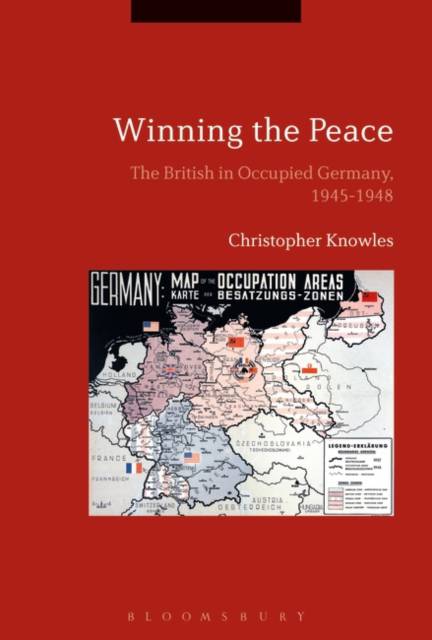
- Afhalen na 1 uur in een winkel met voorraad
- Gratis thuislevering in België vanaf € 30
- Ruim aanbod met 7 miljoen producten
- Afhalen na 1 uur in een winkel met voorraad
- Gratis thuislevering in België vanaf € 30
- Ruim aanbod met 7 miljoen producten
Zoeken
€ 81,45
+ 162 punten
Uitvoering
Omschrijving
By adopting a unique biographical approach, this book examines the aims and intentions of twelve important and influential individuals who worked for the British Military Government in occupied Germany during the first three years after the end of the Second World War. British policy was distinctive, and the British zone was the largest and economically most important of all four zones. Although the three Western Allies all ended in the same place with the creation of an independent Federal Republic of (West) Germany in 1949, they took different paths to get there. The role of the British has been much misunderstood.
Winning the Peace strikes a balance between earlier self-congratulatory accounts of the British occupation, and the later more critical historiography. It highlights diversity of aims and personal backgrounds and in so doing explains some of the complexities and apparent contradictions in British occupation policy. The book concludes that, despite diversity among those studied, all twelve individuals followed a policy described as the 'three Rs' - Reconstruction, Renewal and Reconciliation - rather than the 'four Ds' - De-militarisation, De-nazification, De-industrialisation, and Democratisation - highlighted in earlier histories of the occupation.
Whilst reflecting on the role of human agency, Christopher Knowles examines why individuals sometimes failed to achieve what they originally intended, and how their aims and perceptions changed over time to reveal broader political, sociological and cultural forces, outside their direct control. This book is an innovative study for those interested in the Allied occupation, the post-war history of Germany and the study of military occupation generally.
Winning the Peace strikes a balance between earlier self-congratulatory accounts of the British occupation, and the later more critical historiography. It highlights diversity of aims and personal backgrounds and in so doing explains some of the complexities and apparent contradictions in British occupation policy. The book concludes that, despite diversity among those studied, all twelve individuals followed a policy described as the 'three Rs' - Reconstruction, Renewal and Reconciliation - rather than the 'four Ds' - De-militarisation, De-nazification, De-industrialisation, and Democratisation - highlighted in earlier histories of the occupation.
Whilst reflecting on the role of human agency, Christopher Knowles examines why individuals sometimes failed to achieve what they originally intended, and how their aims and perceptions changed over time to reveal broader political, sociological and cultural forces, outside their direct control. This book is an innovative study for those interested in the Allied occupation, the post-war history of Germany and the study of military occupation generally.
Specificaties
Betrokkenen
- Auteur(s):
- Uitgeverij:
Inhoud
- Aantal bladzijden:
- 288
- Taal:
- Engels
Eigenschappen
- Productcode (EAN):
- 9781350101876
- Verschijningsdatum:
- 20/09/2018
- Uitvoering:
- Paperback
- Formaat:
- Trade paperback (VS)
- Afmetingen:
- 156 mm x 234 mm
- Gewicht:
- 408 g

Alleen bij Standaard Boekhandel
+ 162 punten op je klantenkaart van Standaard Boekhandel
Beoordelingen
We publiceren alleen reviews die voldoen aan de voorwaarden voor reviews. Bekijk onze voorwaarden voor reviews.











